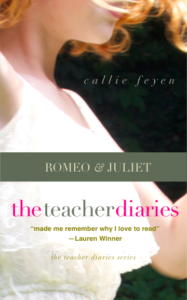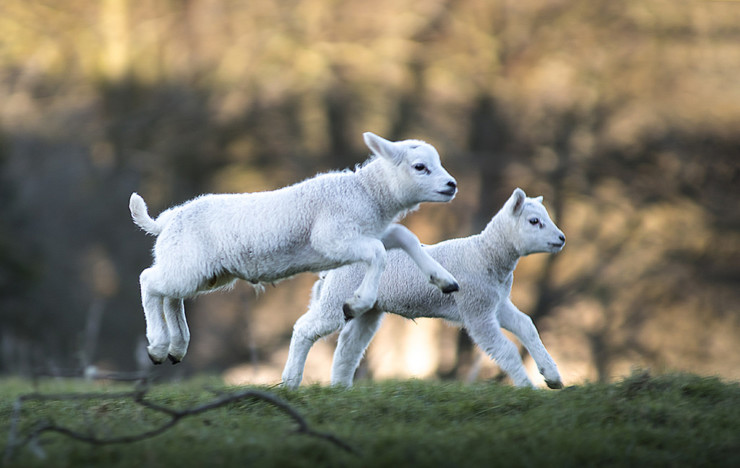Editor’s Note: Some of the themed work Tweetspeak offers is regularly set aside as thanks to our Patrons, whose generosity helps us bring kindness, friendship, and joy to the world.
Today, we hope you’ll enjoy this “Literary Friends” themed piece as our holiday gift to you—a piece that ordinarily would have been for patrons only.
***
Each writing residency in graduate school would begin like this: our director would welcome us and, with a sly grin say, “Work hard; play hard.” There would be rumbling laughter, the kind you hear before a high school prank is about to happen. Some would proclaim, “Let the wild rumpus begin.” I would break out in a sweat.
Play? I didn’t come here to play. I came to work. I certainly didn’t come here to socialize. This wasn’t summer camp. Learning how to read and write better was life or death for me. I had no time for play.
My first residency was horrible. I called my husband almost nightly telling him I’d made a mistake and to get me on the next plane outta this part desert, part mountains nightmare where I swore the coyotes knew my name.
“What is wrong with me?” I sobbed one evening to Jesse on the phone. Why couldn’t I let loose like the other people here? What did they find hilarious about the pursuit to write?
My first semester was rough, too. Every three weeks I had to turn in 3-4 book annotations and 8-10 pages of creative writing. My annotations were dismal – I could only write about whether a story resonated with me, not how the story worked. And in my creative writing, I refused to delve into any kind of conflict. My mentor, a patient woman who is part-monk said as kindly as she could, that I was getting on her last nerve. “You can do this, Callie!” she wrote to me one cold autumn, almost winter evening. It wasn’t a pep talk. It was a command: You can do this. Stop messing around and figure it out.
I didn’t believe her. I’d decided going to graduate school was a mistake, and began to make plans to give up.
This was right around the time my dad sent me Joseph Bottum’s The Christmas Plains. The book is five chapters, and each title explores part of a popular Christmas carol: “Angels We Have Heard,” or, “As I Wander,” for example. My favorite chapter, the one that ended up helping me see graduate school differently, is the chapter about Charles Dickens: “Comfort and Joy.”
Bottum begins discussing the words comfort and joy and the pressure they bring about to the Christmas season. When we are considering the big picture of what Christmas does and is, Bottum argues, no doubt there is joy. However, in order for there to be joy, there ought to be some discomfort, too. Take giving birth in a stable, for example. Take giving birth at all. I focused on holding the baby I would soon meet – pure joy – but a pox on anybody’s barn if they dared to tell me I should feel comfort during labor and delivery.
Consequently, labor and delivery were my favorite parts of my pregnancies. That’s because I was doing something. I was working. I have no problem with pain, fear, or sadness when I can do something with them. But tell me to relax, tell me to get cozy, tell me to play, and I get real concerned. What are the steps to relaxing and becoming cozy? What are the rules to the game I have to play?
Enter Charles Dickens, John Forster, and Jane Carlyle.
Dickens, I learned from Bottum’s chapter, was a party boy, and in 1843, just as A Christmas Carol was finished, Dickens and his buddy Forster crashed a party. A children’s party.
Jane Carlyle, whom Bottum describes as a “prickly eccentric” and introvert, was not what you’d call a party girl. She was also at the event, though it didn’t sound like she was keen on being there. She hadn’t been sleeping well recently, and she’d been fighting with her husband.
At one point during the party, dancing commenced, and Carlyle found herself swept away on the dance floor by Forster. She writes, “[He seized] me round the waist [and] whirled me into the thick of it, and made me dance!!…I cried out, ‘Oh, for the love of Heaven let me go! You are going to dash my brains out against the folding doors!’ ‘Your brains!!’ [Forster] answers, ‘Who cares about their brains here? Let them go!’”
I love the italics in this passage. When Carlyle writes, seized me round the waist I feel like I’m standing with her in a high school hallway and she’s telling me about an adorable but rowdy boy who, and here she is equally mortified and delighted, seized her—his hand cupping her waist and leading her to the dance floor.
“Let them go!” Forster commands Carlyle, referring to the minds of all at the party, including hers. I read that and remembered the command given from the head of my MFA program: Work hard, play hard.
Use your brain until it hurts, and then let it go for a while.
I wanted to be seized. I wanted to be whirled into the thick of it.
//
Every night at the residencies, there was a gathering. I can write now that they were great: rowdy, fun get-togethers with fellow graduate students who would share their work, riff on their writing, make something up on the spot, or simply laugh—loudly—at our decision to pursue a career in writing. At the time though, I hated them. I hadn’t found anything funny about words. I couldn’t understand what I was reading, what I wrote was terrible, and there was nothing humorous about my pursuit to write. Twice a year I left my young children so I could see about becoming a writer. The guilt I felt, especially since I was failing, was insurmountable. I didn’t want to sit in a loud room drinking a beer while hooting and hollering about all this folly.
And many times, I didn’t. I sat in my room alone, telling myself that tonight would be the night I would read something that made sense. Tonight would be the night I would write something good. That never happened. I spent nights unable to sleep, and by the end of my first residency, I think I’d lost my mind, but it wasn’t from using it. It was from worry, anxiety, and exhaustion.
On the last day, I sat across from my mentor in the campus’ coffee shop, and mumbled, “I don’t think I’m cut out for this.” And then I got to the heart of it – “Barely anyone here is a mother. What was I thinking?”
She sat back in her chair, and I wondered if I offended her. She was a mother and a grandmother.
“True,” she confirmed, “but there are a bunch of fathers here.”
I looked her in the eye, suspicious. Those guys. They were the loud ones. They were the rowdy ones. What could I possibly learn from them?
“They’re taking a chance just like you. They’re giving themselves this time, unsure of what the outcome will be.” She took a sip of her coffee, leaned close to me and said, “They know. Watch them. Watch what they do.”
And so with Jane Carlyle, John Forster, and Charles Dickens’ anecdote in my pocket, and an assignment of sorts to watch the fathers in the group, I attempted my next residency. Walking around campus on breaks, I noticed they all used their computers to FaceTime their families back home. I learned one took a semester off because he and his wife were having a third child. One sat with me on a ferry headed toward Port Townsend and read an essay I was currently working on about a time my cousin and I decided to get on a skateboard and dodge Skittles we’d placed along our path. He told me my essay read like fiction. It was the best compliment I’d received on my writing.
I learned one guy loved coffee as much as I do, and we’d have contests to see who could get to the coffee shops around town first. “I beat you,” I bragged over Twitter one day after snapping a photo of a freshly poured mug of coffee.
I never learned to be, or wasn’t, brave enough to participate in the end of the day residency parties, but I went to them and devoured the writing that was shared. These guys in particular reminded me of how Joseph Bottum explained Jane Carlyle described Dickens and Forster the night they’d come to the party, Dickens having just finished A Christmas Carol. They “broke out like madmen…[they] exerted themselves till the perspiration was pouring down and they seemed drunk with their efforts.”
Watching these friends perform, I realized they weren’t just letting off steam from the craziness and stress of the writing pursuit, they were delighted to be doing what they were doing, and to be doing this with each other, great friends whose camaraderie was formed because of the stories they wanted to tell, and wanted to tell well. They taught me that it is possible to write and be a parent, and I am thankful for the lesson, but they also showed me the importance of a little foolishness along the way.
I think that’s what Dickens and Forster were doing that night—expressing the joy and discomfort, and the need for both, in our attempt to write. I can’t say I ever grew comfortable at those residencies, or their parties, but I felt joy, and I learned to be comfortable with my discomfort.
During one residency, I was working on a piece that had to do with a rather chaotic moment in Victoria’s Secret. It was funny, but all I felt at the time it happened was embarrassment, shame, and frustration. Walking away from the store that day, Jesse asked excitedly, “Are you gonna write about this?”
“No way,” I said. “I never want to think about this again.”
“Are you kidding?” he was baffled. “This story writes itself!”
He took my shopping bag so he could hold my hand and I remembered Forster seizing Carlyle, and telling her to forget about her brains and dance. I remembered the guys at my residencies and their ability to take anything awful or scary, embarrassing or sad, and not take any of that away, but make it more than one thing—funny and beautiful, brave and true, so that we (and probably they, too) could bare it.
So I wrote about my incident in Victoria’s Secret. I let myself be seized. I whirled myself into the thick of it. If it weren’t for Jesse and my guy writer friends, I never would’ve attempted to write a story titled “Superbuns” that earned me a spot as a cast member in a national show called “Listen To Your Mother.”
I think Dickens and Forster would approve. Probably Carlyle, too.
***
Oh, and about that Superbuns matter:
Photo by Martyn Fletcher, Creative Commons, via Flickr. Post by Callie Feyen, author of The Teacher Diaries: Romeo and Juliet.

when you become part of the Tweetspeak community
that helps us continue to bring
kindness, friendship and joy to the world.
Just click on the gift, then join us through Patreon
for as little as $1 a month, to get started.

—JJN Mama, Amazon reviewer
- Poetry Prompt: Courage to Follow - July 24, 2023
- Poetry Prompt: Being a Pilgrim and a Martha Stewart Homemaker - July 10, 2023
- Poetry Prompt: Monarch Butterfly’s Wildflower - June 19, 2023

L.L. Barkat says
Oh, I am soooo glad you didn’t give up. Thank you for sharing the tender part of this journey that is writing.
(I also love that though it was, partly, a mother (ahem) who got you into the whole MFA thing, it was the fathers who gave you the bravery to stay with it. And, that the literary friends who wooed you into staying were a mixed crowd. 🙂 )
Callie Feyen says
Haha! Yes, it was a mother and father teamwork situation, wasn’t it? Hooray for the mixed crowds.
Megan Willome says
Oh, Callie, the backstory!
Callie Feyen says
It’s kind of like a VHI “Behind the Music,” right? 🙂
Laura Brown says
What a great story. I can hear that part-monk mentor saying those things.
Sometimes resistance is like leaning back against the rubber band in a slingshot. The right moment comes to to let ourselves be zoomed forward.
Callie Feyen says
Yes, I can hear her, too. She is the kindest person on earth, but she ain’t got time for my dramatics. I love her for that.
Katie says
Oh Callie,
Such inspiration, so much fun – what a gift:)
Gratefully,
Katie
Callie Feyen says
Thank you, Katie! It was pretty fun to write. Thanks for reading it!